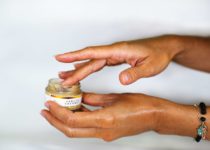4 Surprising Supplements to Prevent Migraines
Migraine headaches are very debilitating that can affect your ability to work, perform daily activities, and can lower your overall quality of life. There are many prescription medications available to both prevent and treat migraines. There are also over-the-counter medications such as ibuprofen (Advil, Motrin) and naproxen (Aleve) that are probably effective in treating migraine headaches. However, prevention is key. What is less commonly known is that there are dietary supplements available over-the-counter that may be beneficial in preventing migraine headaches. This article will discuss the medical evidence for using certain over-the-counter dietary supplements for preventing migraine headaches. We shall also briefly discuss the evidence for acupuncture and the evidence for using over-the-counter medications to treat migraine headaches.
KEY POINTS
- The 4 best supplements that are available over-the-counter to prevent migraines are riboflavin, magnesium, feverfew, and co-enzyme Q10. We recommend riboflavin or co-enzyme Q10 for their safety and efficacy profile.
- Acupuncture may help to prevent migraine headaches.
- We do NOT recommend butterbur due to risk of liver toxicity and cancer risk. We also do not recommend turmeric or CBD.
- The best over-the-counter medications for treating migraines are naproxen (Aleve), ibuprofen (Advil; Motrin), acetaminophen (Tylenol), or Excedrin. Excedrin contains acetaminophen and aspirin so do NOT combine it with medications that have the same ingredients.
LIFESTYLE HABITS TO PREVENT MIGRAINES
Before we dive into the supplements used to prevent migraine headaches, we need to discuss lifestyle measures that will help prevent migraine episodes. Here are just a few lifestyle tips to help you prevent migraines:
- Headache Diary: Keep a headache diary to track the number and severity of migraine headaches every month. Also write down any foods and stressors that trigger your headaches so that you can avoid those triggers in the future.
- Sleep hygiene: Get 8 hours of sleep a day and sleep at the same time each day.
- Food Triggers: Avoid foods that trigger your migraine headaches.
- Exercise: Maintain a regular exercise schedule. Exercise can help prevent migraines.
- Don’t overuse pain medications: If you overuse pain medications for migraine headaches, they can actually cause rebound headaches. Rebound headaches happen when you use pain medications for many days in a row, but then stop using them. This can cause the headaches to return or rebound with greater intensity. To prevent rebound headaches, try not to use anti-migraine pain medicines more than 10 days per month.
For a good overview on lifestyle measures to prevent migraine headaches, watch this video:
PROBABLY EFFECTIVE SUPPLEMENTS ACCORDING TO THE AMERICAN ACADEMY OF NEUROLOGY
The American Academy of Neurology states that the following drugs and supplements are probably effective for migraine prevention: riboflavin, feverfew, and magnesium.
- Riboflavin (Vitamin B2): The American Academy of Neurology states that Riboflavin (Vitamin B2) is probably effective for preventing migraine headaches. In one clinical trial, the number of migraine headaches reduced by more than 50% in many of the patients who took riboflavin (Neurology 1998). The recommended oral dose is Riboflavin 400mg per day taken for 3 months to see its full effects. High-dose riboflavin is also generally well tolerated. It may make your urine very yellow. To purchase, click here.
- Feverfew (MIG-99): Feverfew is an herbal remedy that has been studied for migraine prevention. Some research indicates that Feverfew is helpful for preventing migraine headaches and the American Academy of Neurology states that Feverfew is probably effective for preventing migraine headaches. The medical evidence for Feverfew is mixed, however. Some research studies show that Feverfew was effective, while others do not. People had no major side effects while taking Feverfew in clinical research studies. The dose that was used in these studies was Feverfew 6.25mg capsule take one capsules three times daily. The 6.25mg capsule appears to be a special formulation since I could not find the 6.25mg capsule on amazon.com.
- Magnesium: The American Academy of Neurology states that Magnesium is probably effective for preventing migraine headaches. The dose used in clinical trials ranged from 300mg to 600mg per day (National Institutes of Health). Because these doses are very high, please first consult your doctor before taking Magnesium to prevent migraine headaches. The most common side effects with high dose magnesium were diarrhea and stomach upset. If your doctor recommends Magnesium for your migraine headaches, we recommend the Nature Made brand which can be purchased by clicking here.
POSSIBLY EFFECTIVE ACCORDING TO THE AMERICAN ACADEMY OF NEUROLOGY
The American Academy of Neurology states that the following supplements are possibly effective for migraine prevention: Coenzyme Q10. “Possibly effective” supplements do not have as robust evidence as the “probably effective” supplements discussed above, but these supplements may still be worth a try.
- Coenzyme Q10 (CoQ10): The American Academy of Neurology states that Coenzyme Q10 (CoQ10) is possibly effective for preventing migraine headaches. CoQ10 is an antioxidant nutrient that is naturally found in both your body as well as in many foods such as seafood and meats. It has also found to be helpful in preventing migraine headaches. In one small clinical trial, the participants who took CoQ10 experienced a 50% reduction in headaches after three months (Neurology 2005). The dose they took was Coenzyme Q10 100mg take one unit three times daily. It may take up to 3 months to get the full effects for CoQ10. This supplement was well tolerated and effective for the participants. Click here to purchase on Amazon.
SUPPLEMENTS WITH MIXED RESULTS
- Melatonin: Melatonin is a dietary supplement that is commonly used to help people sleep. One clinical trial showed that taking melatonin 3mg every night may help prevent migraine headaches (J Neurol Neurosurg Psychiatry 2016). Another study showed that melatonin was not effective for preventing migraines (Neurology 2010). Because melatonin can make you sleepy, it is best to take it at night. You can purchase Melatonin 3mg by clicking here.
SUPPLEMENTS WE DO NOT RECOMMEND
- Butterbur (Petastites): Butterbur is an herbal root that has been linked to liver toxicity and possibly cancer. Therefore, we do NOT recommend Butterbur.
- Turmeric: Turmeric is a spice for food as well as a dietary supplement promoted for arthritis. Unfortunately, there is no proof that turmeric works to prevent migraine headaches.
- Cannabidiol (CBD): CBD is a cannabis derived from the hemp plant, but it does not cause a “high.” CBD is often promoted for use in pain. Unfortunately, there is no proof that CBD works to prevent migraine headaches.
WHAT ABOUT ACUPUNCTURE?
Several clinical studies have suggested that acupuncture can help reduce migraine headaches (Lancet Neurol. 2006).
OVER-THE-COUNTER MEDICATIONS THAT TREAT MIGRAINE HEADACHES
Although this article is about dietary supplements which prevent migraine headaches, we wanted to share a few over-the-counter medications that can help treat migraine headaches when they do occur.
- Non-Steroidal Anti-inflammatory Drugs (NSAIDs): Over-the-c0unter NSAIDs include ibuprofen (Advil; Motrin) and naproxen (Aleve). Medical research has shown that taking two ibuprofen 200mg tablets for one dose can help relieve a migraine headache (Cochrane Database Syst Rev. 2013). Additionally, medical research has shown that taking two naproxen 220mg tablets for one dose can help relieve a migraine headache (Cochrane Database Syst Rev. 2013). Either ibuprofen or naproxen is fine, but do NOT take them together.
- Acetaminophen (Tylenol): Medical studies have shown that taking two acetaminophen 500mg tablets for one dose can relieve migraine headache symptoms such as pain and light and noise sensitivity (Arch Intern Med. 2000).
- Excedrin (acetaminophen/aspirin/caffeine): This popular over-the-counter medication was found to alleviate migraine symptoms such as pain, light and noise sensitivity, and nausea (Arch Neurol. 1998). Please remember that Excedrin contains acetaminophen (Tylenol) and aspirin so do NOT take other medications that contain those same ingredients.
Here is a good overview of how to treat migraine headaches:


